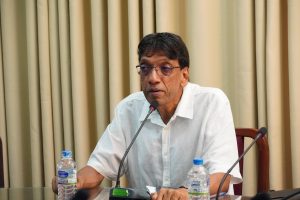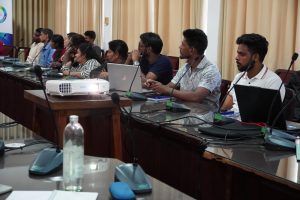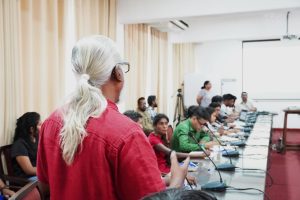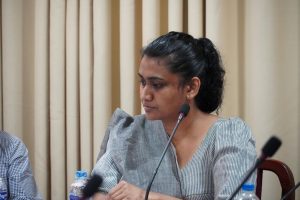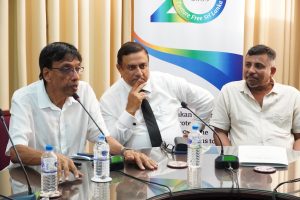
In a landmark assembly at the Hector Kobbekaduwa Agricultural Training Institute in Colombo, leaders from across the spectrum of Sri Lankan society convened to drive forward the initiatives of transitional justice under the banner of the People’s Unite for Justice and Accountability (PUJA) project. This significant gathering, initiated by the Right to Life Human Rights Centre in collaboration with the National Peace Council, underscored a unified commitment to addressing the nation’s historical grievances and advancing reconciliation efforts.
The conference kicked off with an in-depth presentation by the Right to Life Organization, outlining the PUJA project’s core mission to promote justice and accountability across ethnic divides. This introduction set the stage for a series of discussions centered on the intricacies of transitional justice, including the establishment of mechanisms for accountability, reconciliation, and redress for victims of past injustices.
Dr. U.V. Thangaraja and Ms. Yasmada Lokunarangodage, representing the Interim Secretariat of the Truth and Reconciliation Mechanism, offered valuable insights into the draft Commission for Truth, Reconciliation and Unity Bill. Their presentations highlighted the bill’s critical role in confronting and resolving long-standing issues, marking a pivotal step towards national healing.
The need for a dedicated truth-seeking process was emphatically voiced by Dr. Jehan Perera, Executive Director of the National Peace Council. Dr. Perera stressed the importance of understanding and collective effort to alleviate the socio-political tensions rooted in historical conflicts, particularly in regions that have been deeply affected.
Adding to the discourse, President’s Counsel Dr. Asanga Gunawansa highlighted the indispensable role of an independent commission in securing lasting peace. He championed the cause of engaging the public directly in the legislative process, advocating for a bottom-up approach in the policymaking realm to ensure that the voices of the grassroots are heard and considered.
The event concluded on a note of collective resolve, with stakeholders from all walks of life pledging to intensify their efforts towards achieving the noble goals of transitional justice. The spirit of inclusivity and dialogue was palpable as participants left, united in their determination to forge a path toward a more just and harmonious Sri Lanka.
This meeting not only reaffirmed the steadfast commitment of civil society and governmental entities to the cause of transitional justice but also highlighted the collaborative spirit essential for healing the nation’s wounds and building a promising future for all its citizens.
